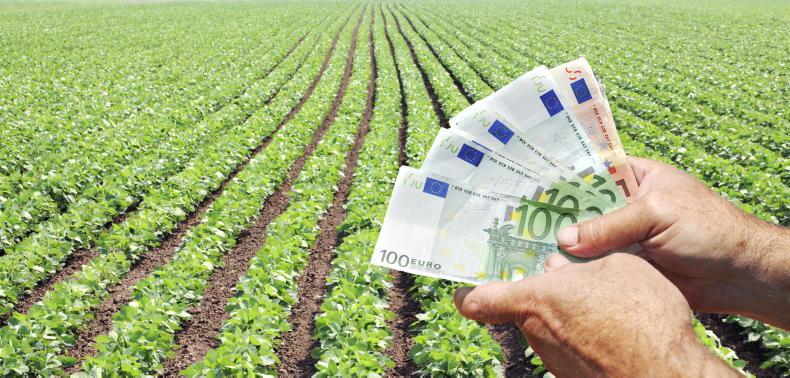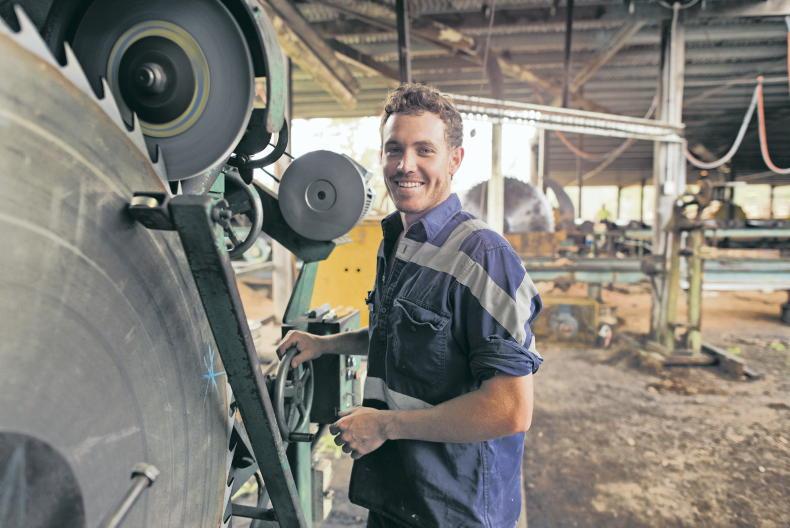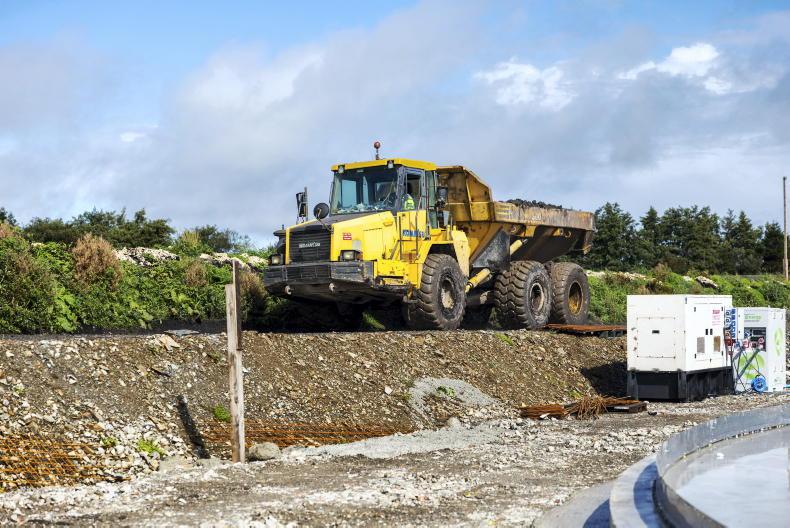Organic Capital Investment Scheme (OCIS)
The aim of the OCIS is to facilitate the development of the organic sector so as to ensure a regular supply of high-quality organic produce to the market. There are various requirements before you can qualify for financial assistance under this scheme, the main ones are:
The project must improve the organic sector and provide you (the producer) with the opportunity of enhanced income. It must help to improve production, handling and preparation of organic produce, and it must also facilitate the production and application of new technologies.The OCIS aims to provide an incentive to young organic farmers to upgrade their agricultural buildings and equipment by providing an increased level of support to meet the considerable capital costs associated with the establishment of their enterprises.
Applying for the OCIS
The OCIS is open to organic operators who are licensed organic operators registered with an approved certification body, who own or have leasehold title to the land/site on which it is proposed to carry out the development.
Eligible investments under the OCIS and grant aid
The scheme covers farm investments such as dairy structures, milking and cooling equipment, animal housing, slurry storage, mobile slurry equipment, animal handling equipment, slat replacement, silage pit resurfacing and other farm investment supports.
The level of grant aid for licensed organic operators is paid at the rate of 40% up to the maximum investment ceiling of €80,000 per holding or €160,000 maximum for two or more young qualifying farmers in registered partnerships. Grant aid for qualifying young farmers will only be paid on approved, completed and eligible expenditure and will be paid at the rate of 60% up to the applicable maximum investment ceiling of €80,000 (or €160,000) per holding.
Organic Farming Scheme (OFS)
The purpose of the OFS is to deliver enhanced environmental and animal welfare benefits and to encourage producers to respond to the market for organically produced food
How to qualify for the OFS
To be eligible you must:
Produce livestock and crop products according to EU organic standards.Complete an approved training course and farm and manage the land included in the application.Register with and be approved with one of the Organic Control Bodies, and have a valid organic license and registration with the Department of Agriculture, Food and Marine.Have a minimum farm area of three hectares for tillage holdings (horticultural producers – one hectare). The requirement is six hectares for all others. Payments under the OFS
Partial conversion of the farm to organic farming is allowed, with conditions. Various payment levels are applicable dependant on type of organic farming, hectares farmed and whether in conversion or full organic status.
‘I am considering organic farming when I inherit the farm from my dad’
Dear Money Mentor,
I am a young livestock and tillage farmer and will inherit the family farm from my father. I am very interested in organic farming. We do not farm organically at present. I know there are schemes and grants available for going organic but I do not know much about them yet. I am wondering if organic farming is profitable enough to cover all the costs involved? I do intend to do an organic course in the near future but I have not applied for this yet. As this is at an early stage for me I would welcome any advice.
Regards,
Jamie
Money Mentor's response
Hi Jamie
You will need to enrol for an organic course run by Teagasc before you decide to move to organic farming. This is a 25-hour QQ1 level 5 organic principles course and is obligatory before you can be accepted into the OFS. It will give you a broad view and will help you to assess economic viability and market opportunities. This course was previously delivered face-to-face but now, due to COVID-19 restrictions, I think it may be online distance learning. Organic farming can be profitable. Like any efficient farmer, maintaining high output levels while controlling production costs with potential to earn premium market prices should contribute to higher returns/margins. In many cases the organic farming scheme payments are an added bonus.
Having spoken to the Department, the OFS is currently closed to new applicants for this year, it opened on 1 March and closed 30 April 2021. The OCIS is open and managed in tranches, the most recent tranche opened 24 July. You need to be an already licensed organic operator to apply for the OCIS. For others thinking of applying that are eligible, this scheme closes on 5 November 2021. You should contact your local agricultural adviser or Teagasc who will give you the best advice specific to you on converting to organic. They will also advise you on the suitability of organic production to your holding, on the changes required to convert to organic production and assist you in drafting the conversion plan which you will require.
Best of luck with your plans,
Margaret.
Read more
Money Mentor: Qualifying for State benefits as a farmer
Money Mentor: managing debt on farms to save money and create peace of mind
Organic Capital Investment Scheme (OCIS)
The aim of the OCIS is to facilitate the development of the organic sector so as to ensure a regular supply of high-quality organic produce to the market. There are various requirements before you can qualify for financial assistance under this scheme, the main ones are:
The project must improve the organic sector and provide you (the producer) with the opportunity of enhanced income. It must help to improve production, handling and preparation of organic produce, and it must also facilitate the production and application of new technologies.The OCIS aims to provide an incentive to young organic farmers to upgrade their agricultural buildings and equipment by providing an increased level of support to meet the considerable capital costs associated with the establishment of their enterprises.
Applying for the OCIS
The OCIS is open to organic operators who are licensed organic operators registered with an approved certification body, who own or have leasehold title to the land/site on which it is proposed to carry out the development.
Eligible investments under the OCIS and grant aid
The scheme covers farm investments such as dairy structures, milking and cooling equipment, animal housing, slurry storage, mobile slurry equipment, animal handling equipment, slat replacement, silage pit resurfacing and other farm investment supports.
The level of grant aid for licensed organic operators is paid at the rate of 40% up to the maximum investment ceiling of €80,000 per holding or €160,000 maximum for two or more young qualifying farmers in registered partnerships. Grant aid for qualifying young farmers will only be paid on approved, completed and eligible expenditure and will be paid at the rate of 60% up to the applicable maximum investment ceiling of €80,000 (or €160,000) per holding.
Organic Farming Scheme (OFS)
The purpose of the OFS is to deliver enhanced environmental and animal welfare benefits and to encourage producers to respond to the market for organically produced food
How to qualify for the OFS
To be eligible you must:
Produce livestock and crop products according to EU organic standards.Complete an approved training course and farm and manage the land included in the application.Register with and be approved with one of the Organic Control Bodies, and have a valid organic license and registration with the Department of Agriculture, Food and Marine.Have a minimum farm area of three hectares for tillage holdings (horticultural producers – one hectare). The requirement is six hectares for all others. Payments under the OFS
Partial conversion of the farm to organic farming is allowed, with conditions. Various payment levels are applicable dependant on type of organic farming, hectares farmed and whether in conversion or full organic status.
‘I am considering organic farming when I inherit the farm from my dad’
Dear Money Mentor,
I am a young livestock and tillage farmer and will inherit the family farm from my father. I am very interested in organic farming. We do not farm organically at present. I know there are schemes and grants available for going organic but I do not know much about them yet. I am wondering if organic farming is profitable enough to cover all the costs involved? I do intend to do an organic course in the near future but I have not applied for this yet. As this is at an early stage for me I would welcome any advice.
Regards,
Jamie
Money Mentor's response
Hi Jamie
You will need to enrol for an organic course run by Teagasc before you decide to move to organic farming. This is a 25-hour QQ1 level 5 organic principles course and is obligatory before you can be accepted into the OFS. It will give you a broad view and will help you to assess economic viability and market opportunities. This course was previously delivered face-to-face but now, due to COVID-19 restrictions, I think it may be online distance learning. Organic farming can be profitable. Like any efficient farmer, maintaining high output levels while controlling production costs with potential to earn premium market prices should contribute to higher returns/margins. In many cases the organic farming scheme payments are an added bonus.
Having spoken to the Department, the OFS is currently closed to new applicants for this year, it opened on 1 March and closed 30 April 2021. The OCIS is open and managed in tranches, the most recent tranche opened 24 July. You need to be an already licensed organic operator to apply for the OCIS. For others thinking of applying that are eligible, this scheme closes on 5 November 2021. You should contact your local agricultural adviser or Teagasc who will give you the best advice specific to you on converting to organic. They will also advise you on the suitability of organic production to your holding, on the changes required to convert to organic production and assist you in drafting the conversion plan which you will require.
Best of luck with your plans,
Margaret.
Read more
Money Mentor: Qualifying for State benefits as a farmer
Money Mentor: managing debt on farms to save money and create peace of mind










SHARING OPTIONS